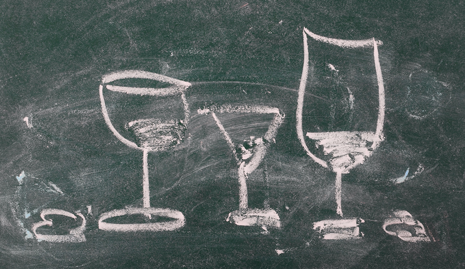Euphoric recall has been studied by researchers for years, and many believe it is a leading cause of relapse.
Alcoholism and addiction are chronic diseases. This means addiction and alcoholism is incurable, constant, and persistent. In other words, if you stop treating your addiction, relapse is inevitable.
Chronic alcoholism can’t be cured by knowledge or thinking positively, and prevention is not a matter of just staying away from drugs and alcohol.
“Just don’t drink” and other common A.A. slogans don’t work for the chronic relapser.
Researchers claim that euphoric recall is one of the many reasons that addicts and alcoholics relapse.
What is Euphoric Recall?
Euphoria means intense happiness. When an addict has an episode of euphoric recall, they will recall their using or drinking with happiness and comfort.
The negative experiences and consequences that have been caused by addiction are pushed out of the mind. Only “positive” memories are remembered.
Why is Euphoric Recall Delusional Thinking?
If you look at an alcoholic’s life, they have lost the power to choose if they will drink or not. No matter how much the alcoholic or addict wishes to stop, they cannot leave it alone.
The consequences pile up. The addict has broken relationships, an inability to manage important tasks, and self-pity and dishonesty associated with their character.
Eventually, something wakes the addict up whether it is jail, a divorce, an intervention, unemployment, or estranged relationships with family.
They see the need to stop, and often they want to stop.
Even though the consequences listed above are caused by drinking and using drugs, they have no effect on them after a certain amount of time.
The big book of Alcoholics Anonymous explains:
“We are unable, at certain times, to bring into our consciousness with sufficient force the memory of the suffering and humiliation of even a week or a month ago. We are without defense against the first drink.”
“The almost certain consequences that follow taking even a glass of beer do not crowd into the mind to deter us.”
Alcoholics Anonymous, Page 24
This is the delusion of addiction and alcoholism. As stated in the doctor’s opinion of Alcoholics Anonymous, “They cannot after a time differentiate the true from the false. To them, their alcoholic life seems the only normal one.”
All the consequences, pain and suffering caused by drinking seems normal. For a normal person without an addiction, this seems insane.
Family members are often baffled and wonder, “Why can’t you just stop?”
What Researchers Say
Leading research states that just thinking about drinking can activate brain frequencies addicts and alcoholics have while using drugs and drinking.
“This brain frequency suggests we consume substances in order to do the most basic of survival strategies, to regulate our emotional and motivational states. Our emotions have become the slaves of substance abuse and behavioural addictions…
In other words, we are prompted/motivated to relieve negative emotions and distress by brain frequencies occurring automatically in the brain.”
Other research suggests that every human forgets “disconfirming evidence after a short time.”
But this forgetting seems to be exacerbated with alcoholics and addicts.
4 Keys to Stopping Euphoric Recall
Working the Steps — The 12 Steps of Alcoholics Anonymous remove the mental obsession that occurs with drinking and using. Euphoric recall is blotted from your mind. The desire to drink and use is removed.
Getting Therapy — Sometimes people need more help than just with their addiction. Oftentimes, mental health problems are so intertwined with addiction that it requires working on both simultaneously.
Relapse Prevention Plan — When you leave treatment, you should have a plan for continued care. A relapse prevention plan helps you know what treatment plan to follow.
Recovery Community — Involvement in a community of similar people who are also recovering from drugs and alcohol can be critical. It will help you have good times that are not associated with drinking or using and will give you a support network.
Check for availability at Burning Tree Ranch
We have small facilities to provide the best level of care, and to ensure recovery remains personal and ethical. Contact us to check availability.
Call Admissions




